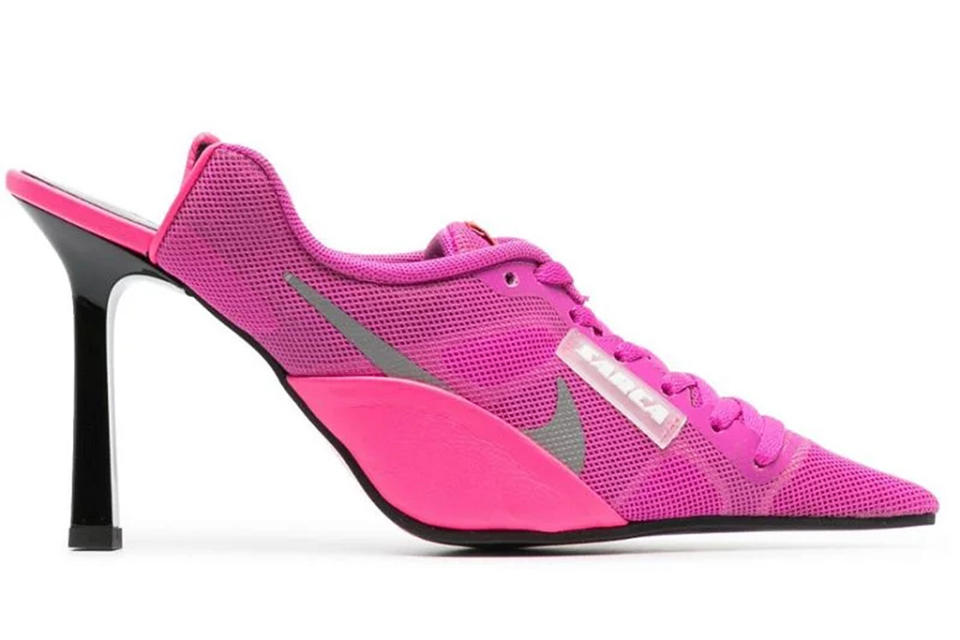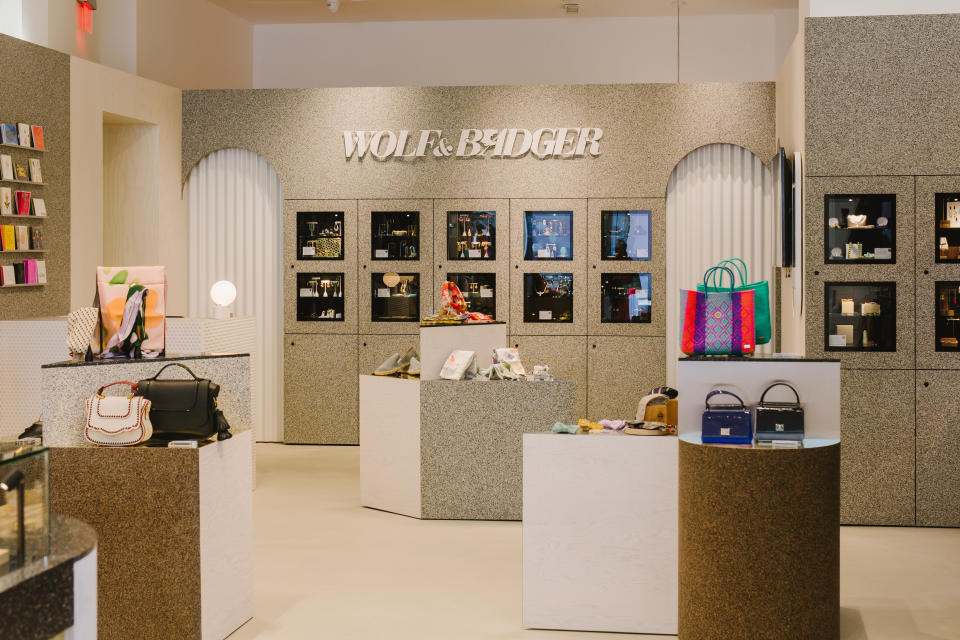How Rothy’s, Browns and More Are Rethinking the Traditional Retail Model for a More Conscious Future

The fashion industry is a major contributor of carbon emissions, the main cause of global climate change.
In recent years, CO2 production in fashion has grown significantly. In 2018, the industry produced around 2.1 billion tons of greenhouse gas emissions — 4% of the global total, according to the Ellen MacArthur Foundation.
More from Footwear News
ThredUp's Top Tips for Individuals to Reduce Their Fashion Footprint & Lessen Impact on the Planet
How a Former Beauty Executive Turned Wine Corks Into Chic, Comfortable Sandals
How Sneaker Brand Psudo Balances Sustainability Goals With a Domestic Manufacturing Model
In light of that, there is increasing pressure internally and externally for brands to develop a more circular economy to reduce waste and the carbon impact to benefit the environment.
But the responsibility also lies with retailers. Rather than relying on production and selling more new items, stores need to entice consumers to engage in circular practices.
And there are advantages to taking these actions. By rethinking the traditional linear business model and focusing on more sustainable practices on a macro level — resale, rental, repairs and remaking — these business models have the potential to grow from 3.5% of the global fashion market today to 23% by 2030, becoming a $700 billion opportunity, per the Ellen MacArthur foundation.
Rothy’s, which doubled its brick-and- mortar presence in 2022, now has 16 shops across the country that are central to its circularity effort.
“Operationally, our stores are the hub of our product recycling program,” said the brand’s head of sustainability, Saskia van Gendt. “By taking back shoes at end of wear, we’re able to recycle shoes into new materials for future use, reducing the amount of waste that ends up in landfills.”
Rothy’s also considers its environmental impact in the construction of its stores, aiming to incorporate as many low-impact construction materials as possible.
For example, it uses recycled paint on all painted surfaces, Forest Stewardship Council-certified wood in its paneling, rPET pellets in its terrazzo flooring, as well as prioritizing low-flow fixtures to cut down on water use and programmable LED lights to reduce energy consumption.
“If you’ve been to a Rothy’s store, you’ll know they tend to be smaller than others,” said van Gendt. “We intentionally seek spaces that make a big impact with a small physical footprint, allowing our team to consume fewer materials during the construction process and help lower our energy consumption once the stores are operational.”
At Fashionkind, the ethical online retailer founded by Nina Farran and actress Sophia Bush, the goal is to create change through a more conscious shopping experience, specifically in the luxury sector.
“We felt there was a real gap in the market at the intersection of luxury design and positive impact, not only to provide a destination for consumers, but also to bring designers and artisans from around the world to market,” Farran said. “If we can shift those dollars and show that this can be done at a luxury level, you can then help it achieve economies of scale and have it be done at a mass level.”
Every brand is vetted through Fashionkind’s “kind code” that evaluates designers, first on fashion and then on impact, focusing on craftsmanship, women’s empowerment and sustainable materials. And it drop- ships rather than houses inventory, to fight overproduction.
The company has since translated its online experience to in-person. In December 2022, Fashionkind partnered with Auberge-owned luxury resort Susurros Del Corazón in Punta De Mita, Mexico, for a standalone location, highlighting 17 up-and-coming Latin American designers in the store. Each product is tagged with a QR code that tells the designer’s story and sustainability credentials.
“Part of the reason we wanted to do this at a resort was to target that over consumption. When you go to a resort, how often have you bought something just as a memento? Or because you needed a hat? That’s pretty wasteful because then you don’t use it again,” explained Farran. “What if we could bring a different experience to the consumer who wants to spend by bringing that transparency to luxury commerce.”
Elevating the shopping experience with easy entry and accessibility to sustainable products has also been key to Browns’ environmental goals.

Courtesy of Browns
“We have our conscious service offering, including Made to Order and Made to Measure, we also partner with the likes of Thrift+, a service which allows you to donate your pre-loved pieces, raise money for incredible causes and earn Browns credit in the process,” said Holly Harding, buying manager for non-apparel.
In addition, the London-based retailer launched its Conscious Edit that is curated with brands assessed in three key areas: people, planet and animals. Each new label launching at Browns is vetted by its “Good on You” process and given a rating based on publicly available information, including industry standards, certifications and a brand’s own reporting.
Harding highlighted standout shoe brands in the category, including Tabitha Ringwood, who avoids overconsumption with limited runs and reuses leftover materials in future projects; Piferi, which has a sustainable and responsible approach; and Ancuta Sarca, an upcycled brand that Browns partnered with last year on an exclusive capsule. “When we launched the Conscious Edit at Browns we knew we wanted to champion designers that were forward thinking,” added Harding. “The Browns shopper is looking for transparency, so with the knowledge we had, we could help guide them and offer them the choice to shop more consciously.”
But experts say more action needs to happen beyond physical products.
Magdalene Barclay, VP of sustainability and content at ethical fashion retailer Wolf & Badger, said retailers must hold themselves accountable to see impact at scale.

Courtesy of Wolf & Badger
“The lack of extensive legislation around ESG issues in the U.S. means that it is up to retailers to set their own standards. This requires a lot of initiative and intention within companies to take it upon themselves to consider all stakeholders,” she added.
Being B Corp certified is one way to set expectations, but policymakers can play a major role. “If there were greater legislation, it would mean that the entire retail industry would have to consider these things, creating a much more sustainable baseline and therefore raising standards all round.”
Best of Footwear News
Sign up for FN's Newsletter. For the latest news, follow us on Facebook, Twitter, and Instagram.

